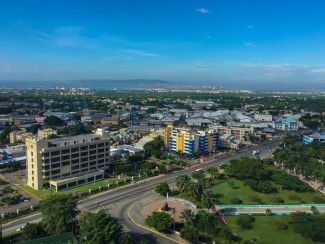Jamaica to update national drug policy

From the Jamaica Observer, Monday 20th June, 2022
KINGSTON, Jamaica — National Security Minister, Dr Horace Chang, says the Government is taking the necessary steps to implement an updated National Policy and Plan of Action for Drug Control.
“This updated National Drug Plan will provide the framework for all counter drug activities. These include institutional strengthening, demand and supply reduction, international cooperation and overall control measures,” Chang outlined.
He was speaking at the recent two-day training workshop on the Monitoring and Evaluation of National Drug Policies, Strategies and Plans at the Jamaica Pegasus hotel in New Kingston.
The workshop was hosted by the Organisation of American States (OAS)/Inter-American Drug Abuse Control Commission (CICAD), the Ministry of National Security and the National Council on Drug Abuse.
“We have prioritised investment in developing data driven policies and practices, legislative reform, capacity building and acquisition of required equipment, tools and software coupled with the implementation of alternative programmes”, Chang shared.
He told the workshop that the establishment of Special Investigative Units by the Narcotics Division of the Jamaica Constabulary Force (JCF) had been successful in disrupting and dismantling narcotic organisations involved in the drugs flow between Jamaica and drug consumer countries.
“The review and amendment of the legislation is critical to anti-drug efforts, which includes the enhancement and strengthening of Jamaica’s Anti-Money Laundering/Counter Financing of Terrorism Legal Framework and Information/data sharing mechanisms that are available to law enforcement operatives,” said Chang.
He further explained that with the recent introduction of the Jamaica Drug Treatment Court, drug-dependent offenders are able to benefit from supervised treatment, which fosters abstinence from substance abuse and encourages participants to lead productive lives free from drug addictions.
“In addition to reducing recidivism, the Jamaica Drug Treatment Court has transformed our approach to the treatment process. We now have a holistic therapeutic process that is geared towards improving the social, vocational, educational and economic conditions of the participants,” Chang stated.
Meanwhile, Advisor on Non-Communicable Diseases and Mental Health at the Pan American Health Organisation (PAHO), Dr Michelle Harris, who was also in attendance, explained that drug dependence is a chronic recurring illness that needs repeated treatments until abstinence is achieved.
“Aftercare with the involvement of several social sectors is also essential to successful recovery and affected persons complying with the treatments and taking responsibility,” she said.
Dr Harris said PAHO advocates for drug dependence treatment to become a part of the mainstream health care and social welfare system, without discrimination and providing the same care that other general and mental health disorders receive.
“There should be an investment in comprehensive and results-oriented programmes for drug dependence treatment and care, particularly community-based interventions, including bolstering the skill set of their human resources,” said Harris.
The work-shop served to provide technical assistance to over 10 participating OAS member states. These include Jamaica, Guyana, Barbados, Belize, St Lucia, Antigua and Barbuda, Dominica, Grenada, St Kitts and Nevis, St Vincent and the Grenadines.
